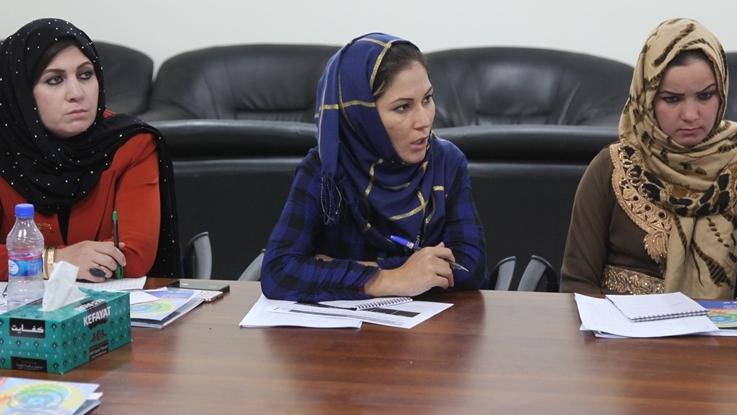MAZAR-E-SHARIF - To help activists leverage the UN Human Rights System, an international human rights booklet was officially launched in Dari and Pashto at a UN-backed event in Mazar-e-Sharif, northern Balkh province.
The one-day regional event -- involving 22 civil society and human rights activists from Balkh, Jawzjan, Faryab, Sar-e Pul, and Samangan provinces – saw the launch of the “Civil Society Space and the UN Human Rights System” booklet.
Prepared by the Office of the High Commissioner for Human Rights (OHCHR), the publication is designed to help activists take full advantage of the UN Human Rights System to promote freedom of expression and association, peaceful assembly and the right to participation.
In the context of discussion about UN Human Rights and how they apply to civil society activism, event participants deliberated about the roles and responsibilities of activists.
Gulchehra Bahin, one of the civil society activists present at the event, recommended facilitating dialogue between civil society organizations and religious scholars, who could partner in promoting human rights.
The concept of modern civil society is barely a decade old in Afghanistan, but civil society organizations in Balkh and other Afghan provinces have become increasingly active in recent years, garnering greater public recognition and government support.
Balkh province shares an international frontier with Turkmenistan, Uzbekistan and Tajikistan. The capital, Mazar-e-Sharif, features an international airport and has been an historically important trading gateway.
UNAMA is mandated to support the Afghan Government and the people of Afghanistan as a political mission that provides good offices; promotes coherent development support by the international community; supports the process of peace and reconciliation; monitors and promotes human rights and the protection of civilians in armed conflict; promotes good governance; and encourages regional cooperation.






